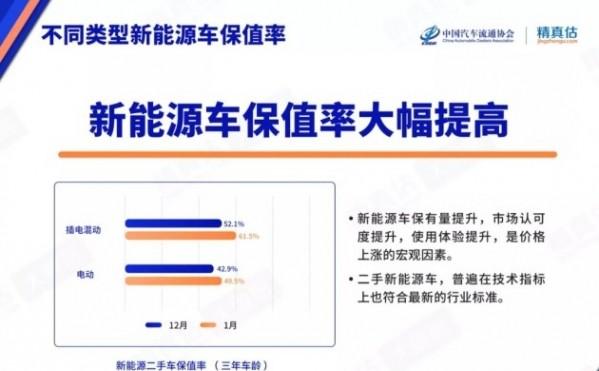【Smart Car Pie News】On February 14, the China Automobile Dealers Association and Jingzhen Estimation recently jointly released the "January 2022 China Automobile Retention Rate Research Report". The report shows that compared with December last year, the retention rate of new energy used cars increased significantly in January this year. Among them, the retention rate of electric vehicles under independent brands has shown an overall downward trend, and the retention rate of luxury brands is also in a temporary decline stage.

China's new energy used car retention rate increased significantly in January
The report believes that the current performance of used car battery energy density, energy consumption level, mileage and other indicators is close to that of new cars, which is the result of the stability of industry standards. In addition, new energy second-hand cars are generally shorter in age, generally within three years, so the performance is closer to that of new cars. This is an important reason for the increase in the retention rate of new energy vehicles.
In addition, the improvement of supporting measures for new energy vehicles has also made more people willing to buy second-hand new energy vehicles. According to the data, by the end of 2021, the scale of charging facilities nationwide will reach 2.617 million units, with 1298 replacement power stations, serving nearly 8 million new energy vehicles. Subsequently, with the implementation of the policy, the mainland will form a more mature charging infrastructure system to meet the charging needs of more than 20 million electric vehicle owners.
In the joint venture camp, although the retention rate of European and American cars is not as good as that of Japanese cars, it is not pulling the distance, but narrowing the gap. Other than that. The retention rate of Korean cars such as Hyundai and Kia is also rising, and gradually approaching Volkswagen.